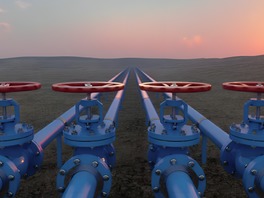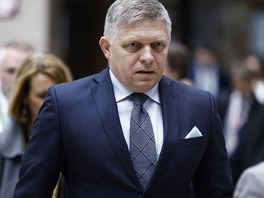On Wednesday, November 24, German parties have reached a deal to form a new government that will end the era of longtime Chancellor Angela Merkel. The government will be headed by Social Democrat Olaf Scholz. This is reported by France24.com
Scholz, of the center-left Social Democrats, said he expects that members of the parties will give their blessing to the deal in the next 10 days.
Among the first measures agreed: compulsory vaccinations in places where particularly vulnerable people are cared for, with the option of expanding that rule. That comes as Germany is seeing a surge in cases, and the political transition has somewhat hampered the country's response.
Scholz also stressed the importance of a sovereign Europe, friendship with France, and partnership with the United States as key cornerstones of the government’s foreign policy — continuing a long post-war tradition.
The new government will not seek “the lowest common denominator, but the politics of big impacts,” Scholz promised.
Robert Habeck, co-leader of the environmentalist Green party, meanwhile, said measures planned by the government would put Germany on a path to meet the goals of the 2015 Paris climate accord.
The Social Democrats have been negotiating with the Greens and the pro-business Free Democrats since narrowly winning a national election on Sept. 26.
There is little detail about the progress of the closed-door negotiations yet, including how the parties will divide up ministerial portfolios.
A preliminary agreement last month indicated that Germany would bring forward its deadline for ending the use of coal-fueled power from 2038 to 2030 while expanding the rollout of renewable energy generation.
At the Free Democrats’ insistence, the prospective partners said they won’t raise taxes or loosen curbs on running up debt, making financing a central issue.
Sources said the parties would like to see SPD candidate Olaf Scholz elected as chancellor by the Bundestag in the second week of December so that the new government can commence its work.
That would also mean that outgoing Chancellor Angela Merkel would not surpass the record for days in office held by Helmut Kohl, falling far less than a month short.
Elections in Germany took place some eight weeks ago. The coalition talks began on October 21.
If the election of Scholz as chancellor goes ahead as planned, it will have taken 73 days to form a new government following the elections. This compares favorably with the 171 days needed after the 2017 elections to form a so-called grand coalition of Merkel's Christian Democrats (CDU) and the SPD.
The main reason for the delay back then was when the FDP walked out of talks saying it was not able to work with the Greens and the CDU in a similar three-way alliance.






